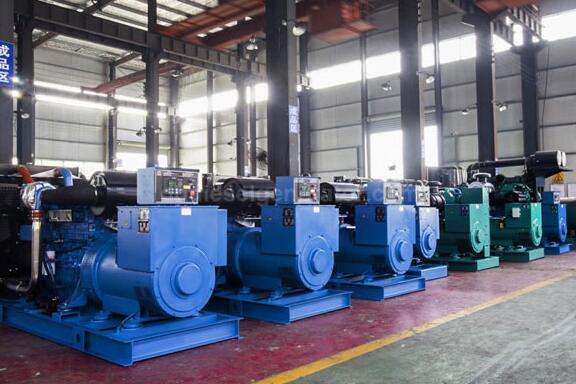Open type diesel gensets are commonly used in various applications where reliable and efficient power generation is essential. These gensets are known for their simplicity, durability, and cost-effectiveness, making them a popular choice for both standby and prime power applications. Let's explore the reasons why open type diesel gensets are preferred by many users.
Reliability and Durability
Open type diesel gensets are renowned for their reliability and durability, making them suitable for continuous operation in demanding environments. Diesel engines are known for their robust construction and ability to withstand heavy loads and high temperatures. With proper maintenance, open type diesel gensets can provide years of reliable service, making them an excellent investment for businesses and industries that require uninterrupted power supply.
Wide Range of Power Outputs
Open type diesel gensets are available in a wide range of power outputs to suit various applications and power requirements. Whether you need a small standby generator for residential use or a large prime power generator for industrial applications, there is a diesel genset available to meet your needs. The flexibility in power output allows users to choose the right genset size for their specific requirements, minimizing costs and maximizing efficiency.
Fuel Efficiency
Diesel engines are known for their fuel efficiency compared to other types of internal combustion engines. Open type diesel gensets can generate power more efficiently, resulting in lower fuel consumption and operating costs over the long term. This makes diesel gensets an economical choice for businesses and industries seeking to reduce their energy expenses without compromising on reliability or performance.
Easy Maintenance
Open type diesel gensets are relatively easy to maintain, thanks to their simple design and robust construction. Routine maintenance tasks such as oil changes, filter replacements, and inspections can be performed quickly and efficiently, minimizing downtime and ensuring optimal performance. Additionally, diesel engines are less prone to wear and tear compared to gasoline engines, further reducing maintenance requirements and associated costs.
Suitable for Outdoor Use
Open type diesel gensets are designed to withstand outdoor conditions, making them suitable for use in remote locations or harsh environments. The open design of these gensets allows for adequate ventilation and cooling, ensuring optimal performance even in hot and humid climates. Additionally, diesel fuel is less volatile than gasoline, making diesel gensets safer for outdoor use in industrial settings or construction sites.
Conclusion
Open type diesel gensets offer numerous advantages, including reliability, durability, wide power range, fuel efficiency, easy maintenance, and suitability for outdoor use. Whether you need backup power for your home, reliable power supply for your business, or prime power for your industrial operations, open type diesel gensets provide a cost-effective and dependable solution. If you're considering investing in a diesel genset, contact us to explore our range of high-quality gensets from trusted suppliers. We'll help you find the perfect genset to meet your power generation needs.

Comments
Post a Comment